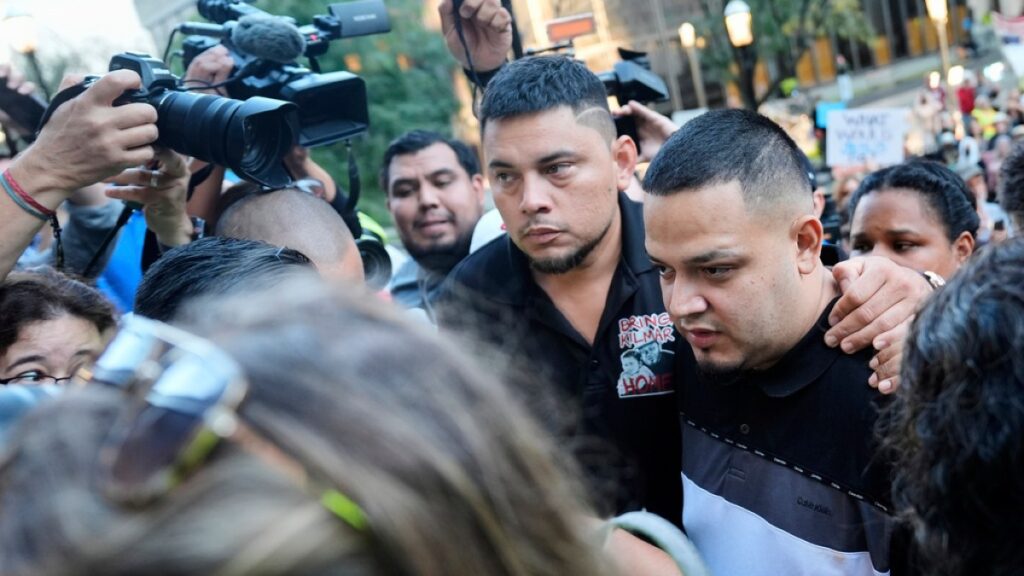Trump administration has said it will deport Abrego Garcia to Uganda, after previously attempting to remove him to El Salvador.
Published On 27 Aug 2025
Kilmar Abrego Garcia, whose wrongful deportation made him a symbol of President Donald Trump’s crackdown on immigration, wishes to seek asylum in the United States.
Lawyers for Abrego Garcia told a judge on Wednesday that the 30-year-old fears persecution and torture should the Trump administration succeed in deporting him to Uganda, as it plans to do.
Abrego Garcia, a Salvadoran man who arrived in the US at the age of 16, was once again taken into the custody of immigration authorities on Monday, as part of a high-stakes back-and-forth over his ability to stay in the country.
In March, Abrego Garcia first made headlines when he was sent back to his native El Salvador, despite a 2019 court order protecting him from deportation.
The Trump administration initially admitted that the deportation was an “administrative error”. Abrego Garcia had expressed fears to the court that returning to El Salvador would subject him to gang violence.
The Maryland father, who is married to a US citizen, was among the deportees from the US sent to El Salvador’s Terrorism Confinement Centre (CECOT), a maximum-security prison with a record of human rights abuses.
While in the facility, his lawyers say he experienced torture, including severe beatings and sleep deprivation.
The Trump administration initially refused to bring him back to the US, saying he was outside of the country’s jurisdiction.
But in early June, Abrego Garcia was abruptly returned, just as the Trump administration unveiled criminal charges against him for alleged human smuggling.
The Trump administration accused Abrego Garcia of involvement in gang activity, citing a 2022 traffic stop as evidence. In video of that stop, Abrego Garcia is seen driving through Tennessee with a van full of people, and a police officer on the scene speculates about what they might be doing. But no criminal charges were brought at the time.
Trump himself has pointed to Abrego Garcia’s tattoos as evidence of his criminal affiliation, although the images he cited were altered to have the gang name “MS-13” superimposed on Abrego Garcia’s skin.
Abrego Garcia has denied any gang ties and pleaded not guilty to the smuggling charges.
His lawyers have depicted the indictment as a “vindictive and selective prosecution” designed to discredit Abrego Garcia, after his case drew criticism against Trump’s deportation policies.
They have also argued that Abrego Garcia’s case illustrates the lack of due process for deportees.
Abrego Garcia was released from a Tennessee jail on Friday after repeated delays. His legal team feared he would be immediately rearrested if he were freed and petitioned the court to keep him behind bars for his safety.
When appearing at a check-in with immigration authorities on Monday, he was indeed taken back into detention and slated for deportation to Uganda.
That same day, a federal judge in Maryland, Paula Xinis, temporarily blocked Abrego Garcia’s second deportation while she heard his petition against his removal. Hearings are scheduled for October in the case.
The news agency AFP has reported that the Trump administration had previously offered to send Abrego Garcia to Costa Rica instead of Uganda if he agreed to plead guilty to the human smuggling charges, but he declined.
“That they’re holding Costa Rica as a carrot and using Uganda as a stick to try to coerce him to plead guilty to a crime is such clear evidence that they’re weaponising the immigration system in a manner that is completely unconstitutional,” said Simon Sandoval-Moshenberg, one of his lawyers.

